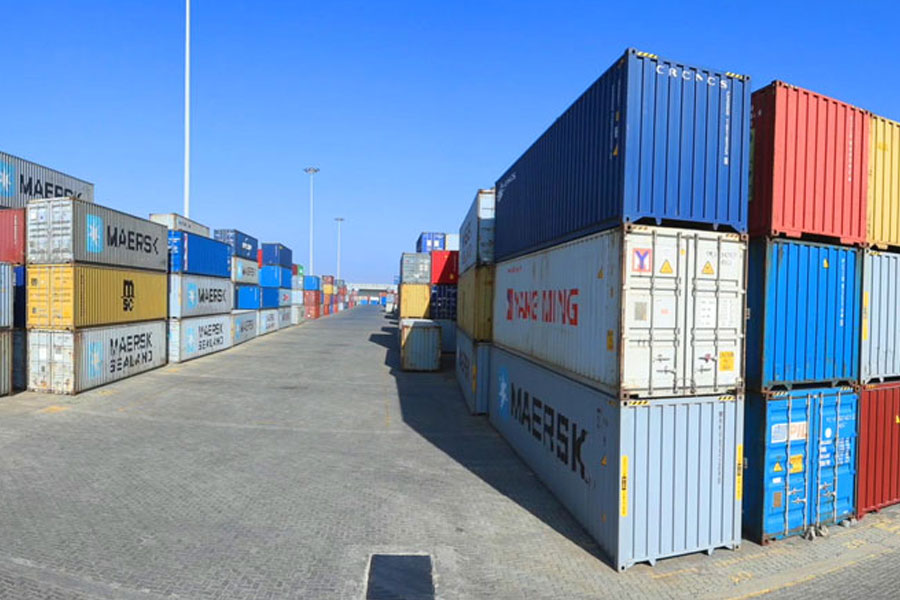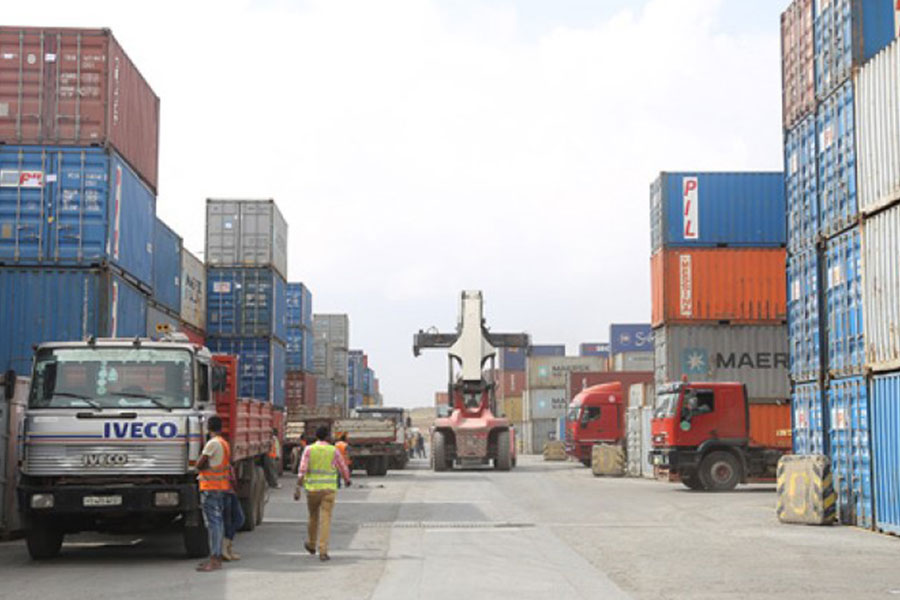
Featured | Oct 16,2021
Freight transporter associations and drivers face a four-month lifeline to transform into commercial entities or meet the consequences, which entail an embargo on crossing the Djibouti border.
The notice is a sequel to the decision put forth by Minister Alemu Sime (PhD) of Transport & Logistics in mid-August which was forewent following the pile-up of containers at Djibouti ports where over 90pc of goods transit through 12,000 vehicles annually.
Despite the commercialisation of the transport sector being heralded as a transformative tool by the Ministry ever since the 2022 proclamation, the transition has been an uphill battle for the transporters who feel it has been rushed and fails to take into account the nature of their business.
The plight was aggravated when associations who had changed to commercial entities were required to formally register every freight they rent through an authentication process that would result in unprecedented tax obligations.
The former manager of the 250-vehicle-strong Bez Cross Border Freight Services, Samuel Ayalew, is one of the few transporters who has managed to successfully transition.
As an owner of four Sino trucks, Samuel opted to make the change confident that he could manage the operational expenses. He went through the rigorous process of receiving a competency assurance certificate, renting an office and hiring management.
"I can cover my costs," he noted. "But not everyone can."
Samuel indicated transporters with a couple of vehicles or less will have great difficulty in making the change due to operational costs that cannot be covered by providing limited services.
He explains that the stipulation that requires all vehicles to either be owned or rented for use by a commercial entity is inconsiderate of Value Added Tax (VAT) obligations that they will be liable to or the difficulty in determining journey durations and fees.
He believes the adamant decision seems to be defragmenting the associations rather than improving service while the reluctance he observes to understand the nature of the business frustrates him.
"They won't even listen," he said.
An agreement that is approved by the Document Authentication Agency stating duration and payments along with the change of transport license into a rental will be required of any of the commercial entities that seek to use other cars to provide services besides their own.
Freight operators question how they can set a price for unpredictable service beforehand.
Founded with 2.7 million Br paid-up capital and 40 members last year, Ethio Meraf Transporter S.C. has been struggling to adjust to the new landscape.
"Unattainable" is how the Manager Tewodros Yohanes put the stipulations on renting the vehicles if they are to be granted cross-border permits. He points to maintenance at garages, hiccups during journeys and the taxation on service providers as indications of the inconsiderate nature of the new stipulations.
The ban has pushed a 100 Br permit to become an attraction for illegal actors rumoured to be sold through backdoor channels for as high as 20,000 Br.
Dereje Luche, Secretary of the Ethiopian Transport Employers Federation, which is home to 50 transport companies, points to the temporary nature of the solution pushed by the Ministry, stressing the need for permanent solutions.
He said that the transporters are signing the four-month extension period to find a window of relief as containers pile up in Djibouti ports from fear of being out of work for too long.
"We have been demanding discussions," he told Fortune.
However, the response from officials at the Ministry does not seem to favour the possibility with adamant poise of the commercialisation project as an integral element of the 10-year transformation of the transport and logistics sector.
Yirga Tadesse, head of the logistics directory at the Ministry, insists that there is little to add to the issue and opted out of commenting further besides telling Fortune, "Ministers had already given instructions."
Keen observers of the logistics sector do not expect the four-month window to make long-lasting changes in the absence of constructive discussions.
Abinet Belay, project manager of the Ethiopian Logistics Sectoal Association, fails to comprehend how a restriction can address an issue, particularly to the sector that has been a source of much controversy over the past years.
She warns it will only give way to illegal actors and corrupt officials while indicating that a middle ground should be reached as both transporters and officials have plausible points.
"Either way vehicles have to be on the road," she told Fortune, stating the need to avoid major logistic disruptions.
PUBLISHED ON
Sep 16,2023 [ VOL
24 , NO
1220]

Featured | Oct 16,2021

Fortune News | Sep 03,2022

Fortune News | Jun 04,2022

Fortune News | Aug 07,2021

Radar | Nov 26,2022

Fortune News | Nov 27,2018

Agenda | Jul 09,2022

In-Picture | Dec 15,2024

Radar | Jul 13,2020

Fortune News | May 07,2022

Dec 22 , 2024 . By TIZITA SHEWAFERAW
Charged with transforming colossal state-owned enterprises into modern and competitiv...

Aug 18 , 2024 . By AKSAH ITALO
Although predictable Yonas Zerihun's job in the ride-hailing service is not immune to...

Jul 28 , 2024 . By TIZITA SHEWAFERAW
Unhabitual, perhaps too many, Samuel Gebreyohannes, 38, used to occasionally enjoy a couple of beers at breakfast. However, he recently swit...

Jul 13 , 2024 . By AKSAH ITALO
Investors who rely on tractors, trucks, and field vehicles for commuting, transporting commodities, and f...

Oct 11 , 2025
Ladislas Farago, a roving Associated Press (AP) correspondent, arrived in Ethiopia in...

Oct 4 , 2025
Eyob Tekalegn (PhD) had been in the Governor's chair for only weeks when, on Septembe...

Sep 27 , 2025
Four years into an experiment with “shock therapy” in education, the national moo...

Sep 20 , 2025
Getachew Reda's return to the national stage was always going to stir attention. Once...